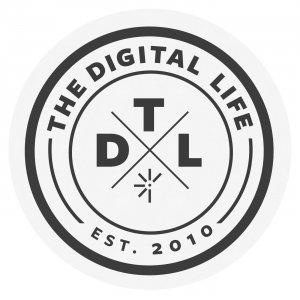The Digital Life

Has virtual reality finally arrived?
Jon: Welcome to Episode 108 of The Digital Life, a show about our adventures in the world of design and technology. I'm your host, Jon Follett, and with me is founder and co-host, Dirk Knemeyer.
Dirk: Hey, Jon, what's going on this week?
Jon: Well, I thought maybe we could take the opportunity to talk about the latest rage in the future of computing and communication, and by that I mean the second coming of virtual reality. This time the format is these goggles that really look like S&M wear, for lack of a better descriptor.
Dirk: Now, Jon, you know a lot about that but I don't know much about that.
Jon: Okay, so fair enough. They look like they're blinding. People who are wearing them obviously look like they're blind to the world, which they are, but they are very much present in this virtual environment. Sony has a version that's coming out for their PlayStation 4 called Project Morpheus, which I'm sure has all sorts of Matrix implications. Then you've got the Oculus Rift, the $2 billion acquisition recently by Facebook, which has sort of started this buzz around virtual reality.
Then HTC has a product called, it's spelled V-I-V-E, I don't know if that's Vive, or Vivè, but that's coming out as well and I'm sure there's a bunch of other products from Samsung and similar players. It really is this tidal wave of tech that's cresting. Of course nobody has really announced how much these things are going to cost, and there have been limited product demos of the actual products, although there sure have been a lot of hype and a lot of video demonstrations and simulations. This has been a dream of the tech community for going on a couple decades now, where you could just walk into this virtual space. William Gibson sort of gave us some of the groundwork for that in his Neuromancer cyber punk, early sci-fi.
You go out into this virtual place where you can create these worlds and be a part of this reality that's separate from ours. I guess my question is, number one, is that promise going to be realized with this current wave, and number two, what are the user experience implications of this? Because a bunch of people walking around with these things on, you think it's bad when people are looking at their mobile phones right now. Wait until there's a guy walking down the street with one of these on, walking in virtual Arlington or virtual Cambridge, right? I'm being a little facetious there, but what's your take on those two aspects of virtual reality?
Dirk: Sure. The first one is the easy one. Will this wave live up to all the promise? No, it certainly won't. It's a cool gadget. Where the technology is now it's something where you use it once and it's sort of amazing. I use it twice or three times and it starts to get stale. There's a novelty aspect to where the technology is now. It's cool that they've got it where it is, but beyond that there's not a whole lot of there there. It's tricky. We have in our five senses such high fidelity input devices, and the fidelity on these cutting edge virtual reality devices is just nowhere near that. It's giving us a simulacra of something else in a way that is not at all maximizing the sensorial potential that we all have.
It's interesting to a point and then at some point what's the point? Because the technology can't take us to places where the marketing would promise. Facebook's big thing is that, oh they're thinking way out. They're way outside the box and these are teleportation devices. That is such hipster bullshit. I'm sorry. There might come a day when technology that's down this kind of a path gets to a point where you could, it's literally not a teleportation device, but you could market it that way because of the great high fidelity level that it brings two or more people together "in a virtual space," but it's nowhere near that now, nowhere near it at all. It's interesting and I think there's a place for it. There's a product category for it,






 Visit Podcast Website
Visit Podcast Website RSS Podcast Feed
RSS Podcast Feed Subscribe
Subscribe
 Add to MyCast
Add to MyCast